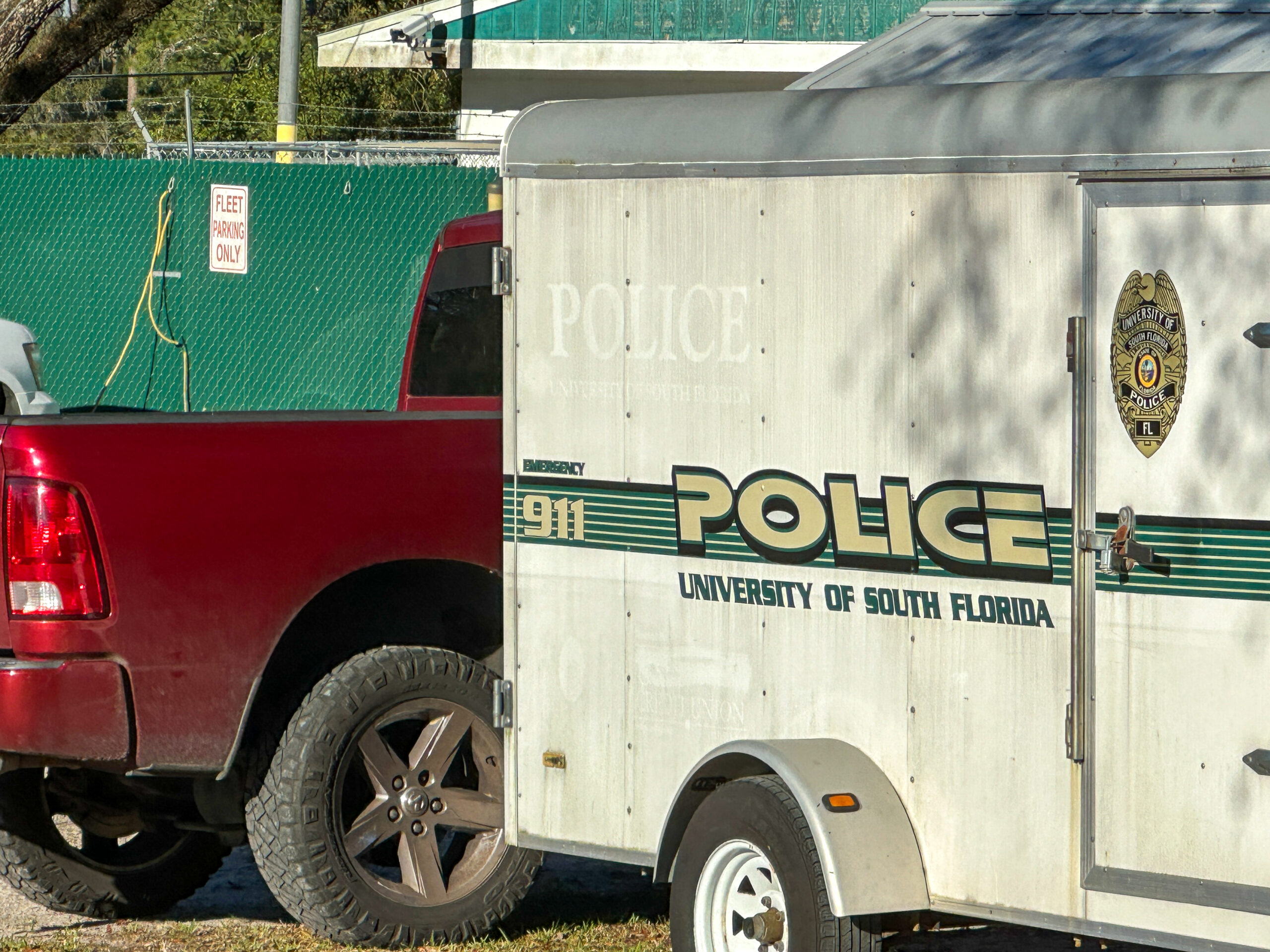USF Police Department seeks to implement body cameras for officers, students express support

After a student petition asking for police to wear body cameras circulated last month, USF police said they already support the measure.
Personnel recognized the benefits that body cams can bring in addition to the in-car camera systems they currently use, according to Public Information Representative for the USFPD Michael Lavelle.
“The advantages outweigh any disadvantages by increasing the transparency and accountability of police to our community and preventing false complaints against officers or allowing us to easily resolve misunderstandings of police procedures,” he said.
Support for this initiative has been expressed by student organization Young Americans for Liberty (YAL). The group started the petition for USFPD to require officers to wear body cameras.
The petition was released Jan. 26 after the USF chapter met with their national organization to pick a cause that they thought USF students would benefit from, according to YAL chapter President Ashton Anderson. He said the petition has 50 signatures so far, but they are hoping to receive more by posting flyers around campus to increase awareness.
Anderson said that YAL has not spoken to USFPD yet, but they plan to communicate with the administrative body once they have a sizable number of signatures.
Lavelle said the police department has already discussed the initiative with USF leadership and have their support.
The reason body cameras haven’t been implemented yet is due to costs associated with acquiring the cameras and equipment, as well as on-going costs of data maintenance and storage, according to Lavelle. He said the cameras generate a lot of data, which requires more effort from their IT personnel. Additional staff time is also necessary to ensure that they would be following public record requirements.
“The matter of accountability for those in authority is of great importance to us and we think this issue is one in which all can support,” Anderson said.
A petition is not necessary for the implementation of the body camera program and could potentially cause confusion that the university isn’t already considering adding body cameras, according to Lavelle. He said this issue comes down to money. The university and USFPD are currently working together to find necessary funding to implement them.
Student Government sent a proclamation to the campus police department a few years ago stating that officers would be compelled to wear body cameras, according to Lavelle.
Without the financial commitment to implement the program along with the proclamation, he said the financial aspect remained the main reason why it hasn’t happened yet. Once they figure out a plan to financially cover the costs, the program should be up and running, according to Lavelle.
“We believe the implementation that the introduction of body worn cameras would be beneficial to all involved. Our personnel function in an effective and professional manner and the implementation of body worn cameras would help us to illustrate that friendly and professional side of our officers,” Lavelle said.








